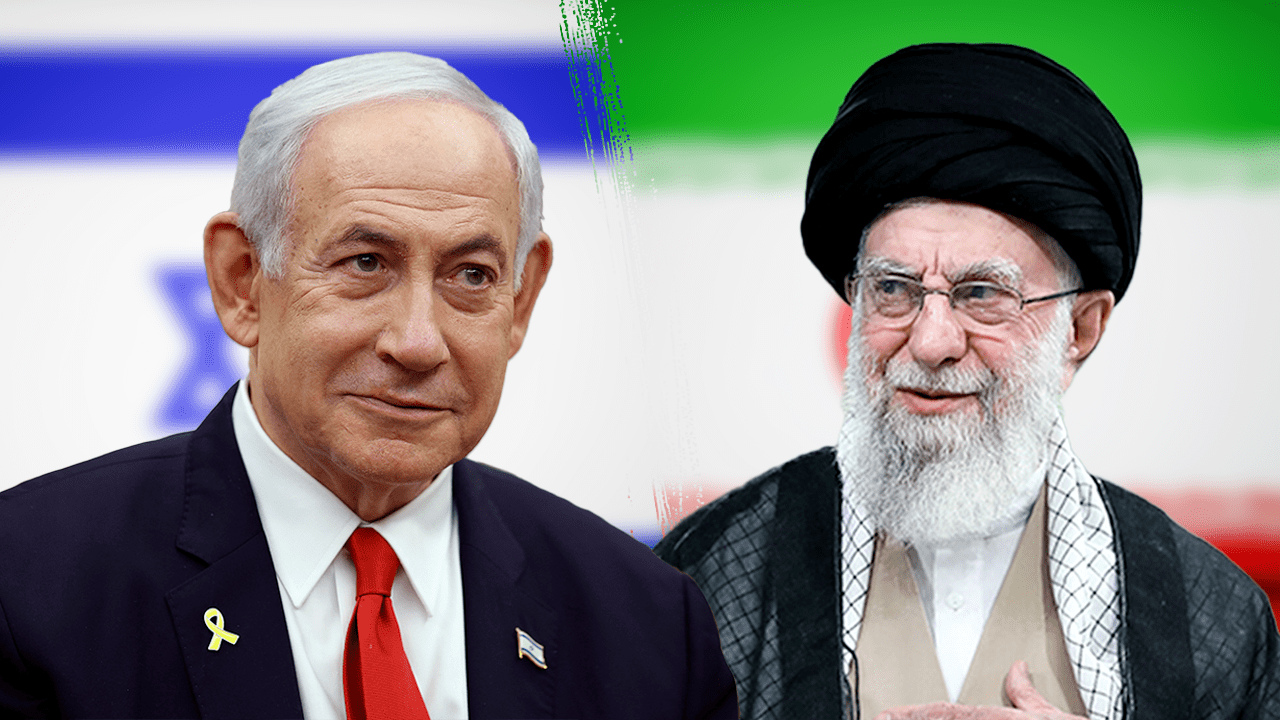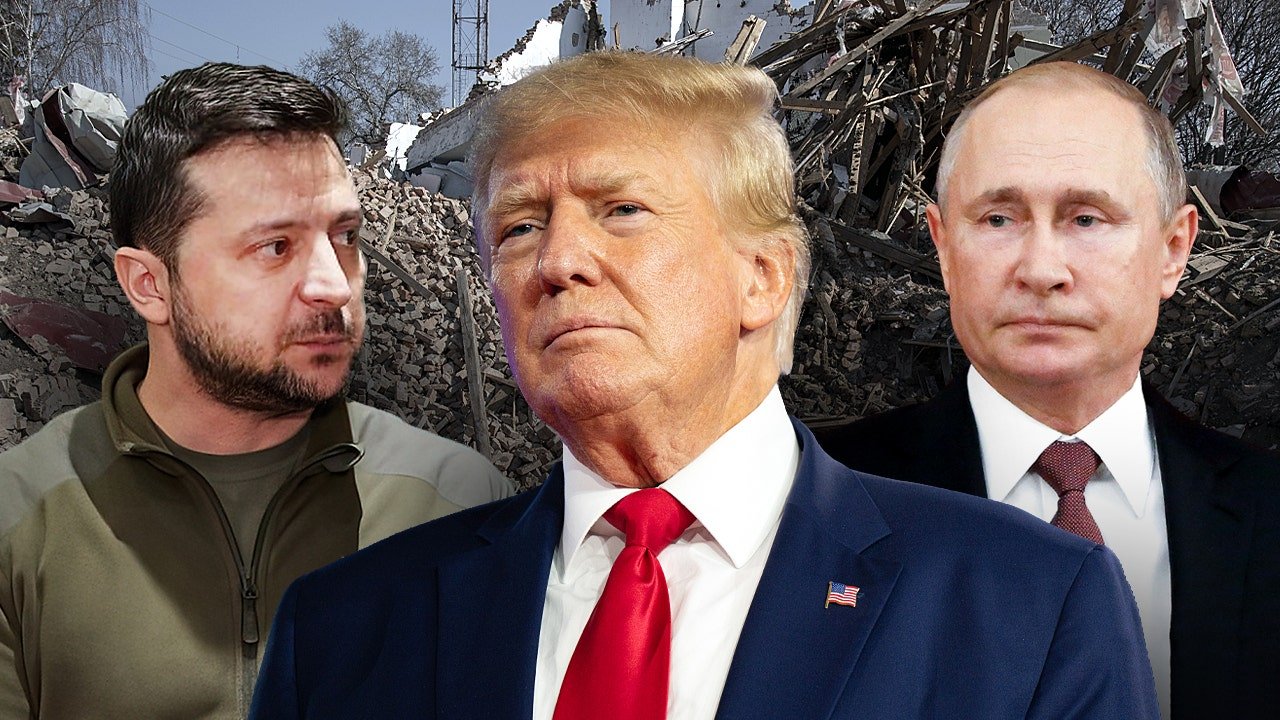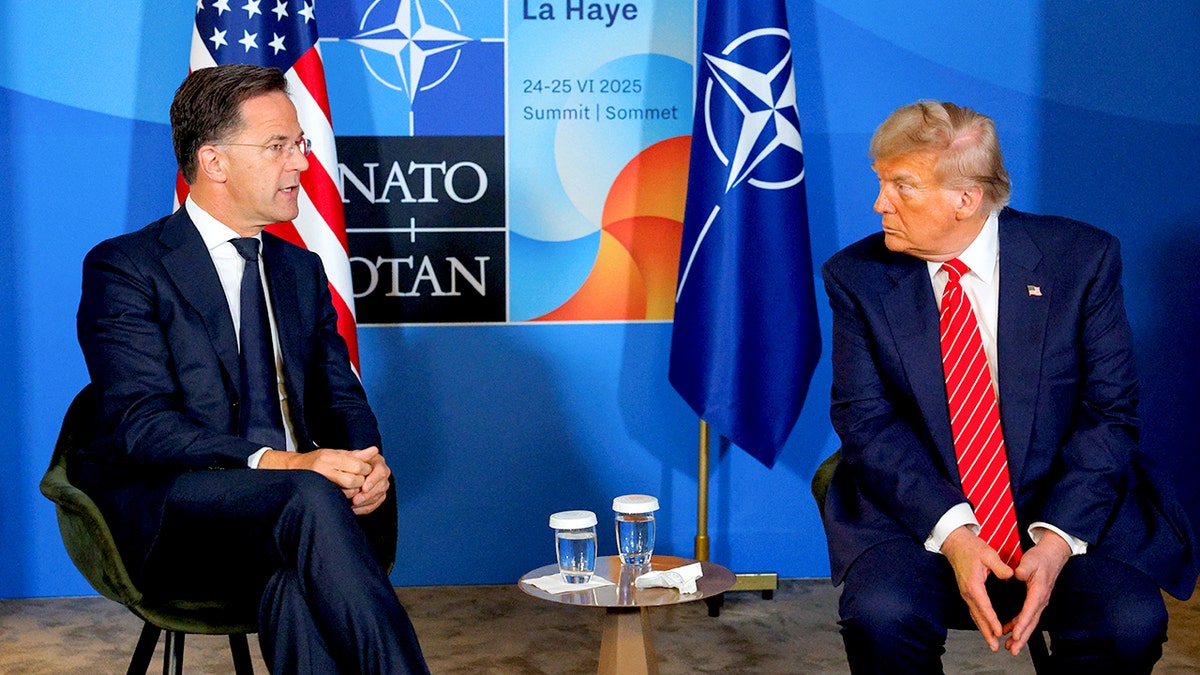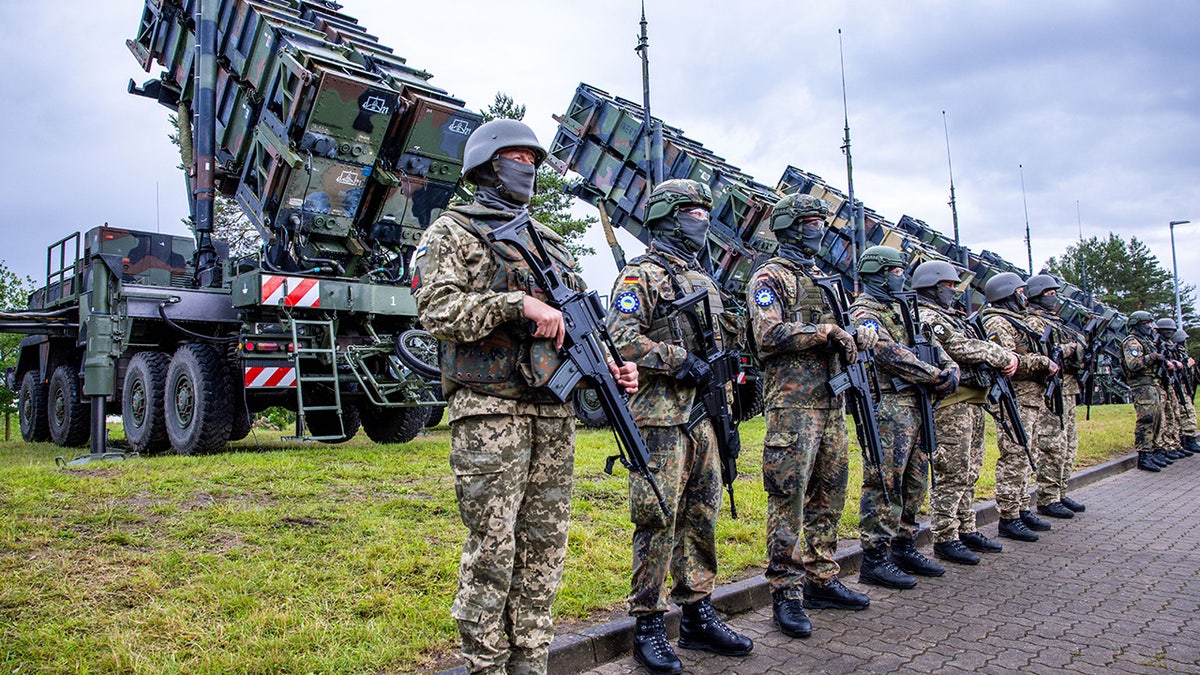INTERNACIONAL
Fox News Poll: Voters think Iran poses a real threat to US security, but split on Israel’s strikes

NEWYou can now listen to Fox News articles!
As the conflict in the Middle East escalates, voters are torn on Israel’s decision to attack Iran’s nuclear facilities, yet they agree Iran is a national security threat and that what happens abroad matters to life in the U.S.
Seventy-three percent of registered voters think Iran poses a real threat to the U.S., a 13-point increase from six years ago (the last time this question was asked).
«The increased sense that Iran constitutes a threat is real, but it also reflects the unique timing and circumstances surrounding this poll,» says Republican pollster Daron Shaw, who helps run the Fox News Poll along with Democrat Chris Anderson. «The poll was in the field as images of Iranian missiles falling on Tel Aviv dominated television and the internet — the immediacy and clarity of the conflict undoubtedly contributes to how voters gauge what is at risk.»
Majorities of Democrats (69%), Republicans (82%), and Independents (62%) agree Iran poses a real risk and those numbers are up since 2019 (by 12, 17, and 4 points respectively).
The latest Fox survey, released Wednesday as President Donald Trump urged for Iran’s «unconditional surrender,» also finds voters split on Israel’s decision to launch military strikes against Iran’s nuclear programs – nearly half (49%) approve of the strikes while slightly fewer (46%) disapprove.
Republicans (73% approve) are more than twice as likely as Democrats (32%) and Independents (32%) to approve of the strikes.
FOX NEWS POLL: THE FIRST 100 DAYS OF PRESIDENT TRUMP’S SECOND TERM
Voters have contradictory concerns. On the one hand, voters are pessimistic about how the air strikes will affect security. Most think the attacks against Iran will make the world a more dangerous place (59%) rather than safer (36%). About three-quarters of Democrats (74%) and Independents (77%) agree the strikes will increase peril, as do nearly 4 in 10 Republicans (36%).
On the other hand, voters are worried about Iran developing a nuclear weapon. Almost 8 in 10 say they are also extremely or very concerned about Iran’s nuclear program (78%) up from 66% in April and matching the high in September 2010. The increase comes from demographics across the board.
FOX NEWS POLL: DEMOCRATS’ FAVORABILITY HITS NEW LOW, STILL FAVORED OVER GOP IN 2026 MIDTERMS
While concern is palpable, voters see other issues as more pressing. When presented with a list of eight issues, Iran’s nuclear program falls in the middle. The future of the U.S. (85% extremely or very concerned), inflation (84%), and government spending (80%) rank higher while antisemitism (69%), illegal immigration (67%), the use of U.S. military troops domestically (66%), and protests in U.S. cities (63%) rank lower than concerns about Iran.
While roughly 8 in 10 Democrats, Republicans, and Independents are concerned about Iran getting a nuke, it only ranks in the top three concerns for Republicans.
Overall, 8 in 10 think what happens in the Middle East matters a great deal or some to life in the U.S. (81%) while more than half support financial aid to the Israelis for their military (53%), a 3-point increase since March, but down from a high of 60% in November 2023, shortly after the October 7 Hamas attacks.
Since November 2023, Democrats (-14 points) and Independents (-11) are less likely to support sending money to the Israelis while Republicans (+4 points) solidified their support.
«Even though most think the stakes are high, there is a reticence to get involved in the Middle East,» says Shaw. «The public isn’t blind to history and history teaches us that those who get directly involved in these conflicts do so at their peril.»
Trump left the G7 summit early on Monday along with Secretary of State Marco Rubio, citing the ongoing and intensifying situation in the Middle East as the reason.
Trump’s approval rating on foreign policy has held relatively steady since April: 42% approve vs. 57% disapprove for a net negative rating of -15, it was -14 last month. He fares better on border security (53% approve, 46% disapprove) and immigration (46%, 53%) while he does worse on the economy (40%, 58%) and inflation (34%, 64%).
Overall, 46% approve of his job performance as president, while 54% disapprove.
Trump’s personal favorable rating held steady at 45%, compared to those in his administration.
Trump’s personal favorable rating held steady at 45%. Compared to those in his administration, Trump’s about even with Vice President JD Vance (44% favorable) and performs better than Rubio (42%), Elon Musk (41%), and Secretary of Defense Pete Hegseth (32%). Robert F. Kennedy Jr. does the best with a 48% favorable rating.
For comparison, the favorable ratings among Democratic Party leaders were in the same ballpark: Kamala Harris (49% favorable), Joe Biden (43%), Alexandria Ocasio-Cortez (40%), and Gavin Newsom (39%). Everyone tested was viewed more negatively than positively, although by only 2 points for both Harris and RFK Jr.
The Russia-Ukraine conflict
The continuing war between Russia and Ukraine takes a backseat to the conflict in the Middle East, with 72% saying the war matters a great deal to life in the U.S. compared to 81% who say the same about what is happening in the Middle East.
Those saying the Russia-Ukraine war matters are down from 81% in October 2023 (when the question was last asked) and a high of 85% in March 2022 (at the start of the war).
Even so, 56% of voters support sending money to Ukraine to help fight Russia. That number has held steady at between 54 and 63% for the last three years.
Big picture, majorities favor sending financial aid to the Ukrainians (56%) and the Israelis (53%) to fight their respective wars, with partisanship driving support in the different theaters.
Seventy percent of Democrats support funding Ukraine compared to just 46% of Republicans, while 71% of Republicans favor sending aid to Israel compared to just 43% of Democrats.
CLICK HERE FOR CROSSTABS AND TOPLINE
Conducted June 13-16, 2025, under the direction of Beacon Research (D) and Shaw & Company Research (R), this Fox News survey includes interviews with a sample of 1,003 registered voters randomly selected from a national voter file. Respondents spoke with live interviewers on landlines (149) and cellphones (566) or completed the survey online after receiving a text (288). Results based on the full sample have a margin of sampling error of ±3 percentage points. Sampling error for results among subgroups is higher. In addition to sampling error, question wording and order can influence results. Weights are generally applied to age, race, education, and area variables to ensure the demographics of respondents are representative of the registered voter population. Sources for developing weight targets include the American Community Survey, Fox News Voter Analysis and voter file data.
INTERNACIONAL
Camiones de ayuda humanitaria comenzaron a entrar a Gaza tras el anuncio de una “pausa táctica” de Israel

Los primeros camiones cargados con ayuda humanitaria comenzaron a ingresar a la Franja de Gaza desde Egipto el domingo, coincidiendo con el anuncio israelí de una “pausa táctica” en sus operaciones militares en partes del territorio devastado para permitir las entregas de asistencia.
Los medios estatales egipcios confirmaron el movimiento de convoyes, compartiendo imágenes de camiones en la zona fronteriza. Las imágenes de AFP mostraron grandes camiones cargados con sacos blancos atravesando el lado egipcio del paso de Rafah.
Algunos camiones exhibían el logo de la Media Luna Roja Egipcia, mientras que otros portaban la bandera de Emiratos Árabes Unidos, con letreros que decían: “Emiratos Árabes Unidos – Ayuda Humanitaria para Gaza – Proyectos de Apoyo de Agua en Gaza”.
Sin embargo, los camiones que cruzan la frontera de Rafah no pueden ingresar directamente a Gaza, ya que el lado palestino del cruce fue tomado por el ejército israelí el año pasado y ha resultado gravemente dañado. En su lugar, deben desviarse algunos kilómetros hacia el cercano cruce de Kerem Shalom (Karam Abu Salem), que está controlado por Israel. Allí son inspeccionados antes de ser autorizados a entrar al sur de Gaza.
El ejército israelí anunció el domingo que la pausa diaria en el enclave, que se extenderá de 10:00 a.m. a 8:00 p.m., se aplicará únicamente a áreas específicas, incluyendo Al-Mawasi, Deir el-Balah y partes de la Ciudad de Gaza, donde las tropas israelíes no están operando actualmente.
El comunicado militar agregó que se habían abierto rutas seguras a través del enclave para facilitar los convoyes de las Naciones Unidas y otras organizaciones de ayuda. Estas rutas operarán “de las 06:00 a las 23:00 (03:00 a 20:00 GMT) para permitir el paso con toda seguridad de las caravanas de la ONU y de las organizaciones de ayuda humanitaria que entregan y distribuyen alimentos y medicamentos a la población”.
La medida surge en medio de una creciente presión internacional sobre la crisis de hambre que se agrava en Gaza. Israel comenzó a lanzar alimentos desde el aire hacia el territorio, siguiendo anuncios similares de los Emiratos Árabes Unidos y el Reino Unido.
El ejército israelí difundió imágenes del lanzamiento en paracaídas de “siete lotes de ayuda que contienen harina, azúcar y conservas” sobre el enclave, realizado “en coordinación con organizaciones internacionales y dirigido por el Cogat”, un organismo del Ministerio de Defensa israelí responsable de los asuntos civiles en los Territorios Palestinos.
Sin embargo, los funcionarios humanitarios se mantienen escépticos sobre la efectividad de estas medidas. El jefe de la agencia de la ONU para los refugiados palestinos (UNRWA), Philippe Lazzarini, advirtió que los lanzamientos aéreos eran “costosos, ineficaces y pueden inclusive matar a civiles hambrientos”.
Israel insiste en que no está restringiendo la ayuda y afirma que algunas agencias de la ONU no están distribuyendo los suministros que ya se encuentran dentro de Gaza. Pero las organizaciones de auxilio acusan al ejército de limitar el acceso y crear condiciones peligrosas cerca de los centros de distribución.
La situación humanitaria se ha deteriorado gravemente en los últimos días. Más de 100 organizaciones no gubernamentales advirtieron esta semana que el “hambre masiva” se extiende por la Franja de Gaza, donde viven más de dos millones de personas.
El sábado, la agencia de defensa civil de Gaza informó que más de 50 palestinos murieron en ataques y disparos israelíes, incluyendo algunos que esperaban ayuda.
A finales de mayo, Israel levantó muy parcialmente el bloqueo total impuesto a la Franja en marzo, lo que ha llevado a graves carencias de alimentos, medicamentos y otros bienes de primera necesidad. La ONU y diferentes organizaciones no gubernamentales han denunciado un aumento de la desnutrición infantil.
El viernes, París, Berlín y Londres instaron a Israel a “levantar inmediatamente las restricciones sobre el envío de ayuda”. La ONU realizará este lunes y martes una conferencia de alto nivel en su sede de Nueva York para debatir una solución diplomática.
La guerra en Gaza fue desencadenada por un ataque del grupo terrorista palestino Hamas en Israel el 7 de octubre de 2023, que provocó la muerte de 1.219 personas del lado israelí, en su mayoría civiles. En respuesta, Israel lanzó una ofensiva que ha dejado al menos 59.733 muertos en la Franja, en su mayoría civiles, según datos del Ministerio de Salud de Hamás, considerados fiables por la ONU.
Middle East,Military Conflicts,RAFAH
INTERNACIONAL
From talk to tactics: Trump pivots on Russia strategy to end war

NEWYou can now listen to Fox News articles!
President Donald Trump’s approach with Russian President Vladimir Putin pivoted drastically this month when, for the first time since returning to the White House, he not only confirmed his support for Ukraine in a NATO arms agreement but issued an ultimatum to the Kremlin chief.
The warning came in a clear message: Enter into a peace deal with Ukraine or face stiff international sanctions on its top commodity, oil sales.
While the move has been championed by some, it has been questioned by others who debate whether it will be enough to deter Putin’s war ambitions in Ukraine. One security expert is arguing the plan will work, but it might take years to be effective.
President Trump speaks to Russian President Vladimir Putin during his first term. (Reuters/Jorge Silva)
NATO CHIEF PRAISES TRUMP’S WEAPONS SALES TO ALLIES AS ‘SIGNIFICANT’ MOVE THAT COULD FORCE PUTIN TO NEGOTIATE
«I think it will be effective, and he’s going to stick to that strategy. He’s going to continue to push Putin to return to the bargaining table and negotiate in good faith, not come to the bargaining table, make promises that the Russians don’t plan on keeping,» Fred Fleitz, who served as a deputy assistant to Trump and chief of staff of the National Security Council during the president’s first term, told Fox News Digital.
«That’s something Trump’s not going to tolerate,» Fleitz added. «We will see this is just the first six months of the Trump presidency. This may take a couple of years to solve.»
But Trump campaigned on ending the wars in Ukraine and Gaza, which has proven to be more complicated than he suggested from the campaign trail. And not everyone in the Republican Party has backed his approach when it comes to Europe, including a staunch Trump supporter, Rep. Marjorie Taylor Greene.
«We do not want to give or sell weapons to Ukraine or be involved in any foreign wars or continue the never-ending flow of foreign aid,» Greene said on X. «We want to solve our own problems plaguing our own people.»
Fleitz pointed to Trump’s decision to directly strike Iran and argued it reflected Trump’s ability to be nimble as a leader.
«He looked at the intelligence and realized it was getting too close, and he decided to adjust his policy, which was first diplomacy,» Fleitz said.
«But Trump also specified something very important. He said to his supporters, ‘I came up with a concept of the America-first approach to U.S. national security, and I decide what’s in it,» Fleitz added. «He has ownership of this approach, and he will adjust if necessary.»

President Donald Trump meets with NATO Secretary General Mark Rutte at the NATO summit in The Hague, Netherlands, June 25, 2025. (Reuters/Brian Snyder)
TRUMP SAYS US WILL SEND PATRIOT MISSILES TO UKRAINE, ADDS THAT PUTIN ‘TALKS NICE AND THEN HE BOMBS EVERYBODY’
Though Trump had made clear from the campaign trail that he wanted to see Europe take a leading role in the war in Ukraine, last week he countered a major talking point from some within his party, including Vice President JD Vance.
Vance has argued against arming Ukraine and said in an op-ed last year, «[It] is not just a matter of dollars. Fundamentally, we lack the capacity to manufacture the amount of weapons Ukraine needs us to supply to win the war.»
Trump agreed to sell NATO nations top U.S. arms that will then be supplied to Ukraine.
«We want to defend our country. But, ultimately, having a strong Europe is a very good thing,» Trump said, sitting alongside NATO Secretary General Mark Rutte.
Security experts have largely argued that the future of Ukraine’s negotiating ability and, ultimately, the end of the war, will play out on the battlefield.
On Thursday, John Hardie, deputy director of FDD’s Russia Program, told U.S. lawmakers on the Helsinki Commission, also known as the Commission on Security and Cooperation in Europe, in a defense briefing that Ukraine needs to be supplied with long-range strike capabilities that can hit key Russian missile and drone plants.

Ukrainian and German soldiers train on the Patriot air defense missile system at a military training area in Germany in June 2024. (Jens Büttner/picture alliance via Getty Images)
‘TRUMP HAS CHANGED THE GAME’: NATO ENTERS BRAVE NEW ERA UNDER PRESSURE FROM US, RUSSIA
«Ukraine shouldn’t be restricted merely to shooting down ‘arrows’,» Hardie said. «An optimal approach will combine both offense and defense. Ukraine needs to be able to hit the ‘archer’ and the factories that make the ‘arrows.’
«Putin will continue his unprovoked war so long as he believes it’s sustainable and offers a pathway to achieving his goals,» Hardie argued. «By shoring up Ukraine’s defense of its skies and enabling Ukraine to inflict growing costs on Russia’s war machine, as well as pressuring the Russian economy and exhausting Russia’s offensive potential on the ground, we may be able to change that calculus.»
But Fleitz, who serves as vice chair of the America First Policy Institute’s Center for American Security, said he believes this war will only be brought to an end when an armistice agreement is secured.
«I think there’s probably going to be an armistice where both sides will agree to suspend the fighting,» Fleitz said. «Someday, we will find a line where both nations will agree to stop fighting.»
Ultimately, he believes this will happen by Ukraine agreeing not to join NATO for a certain period of time, though with Moscow’s understanding that Kyiv will be heavily armed by Western allies.

In this photo provided by the Ukrainian Presidential Press Office, Ukraine President Volodymyr Zelenskyy, right, and President Donald Trump, talk as they attend the funeral of Pope Francis in Vatican April 26, 2025. (Ukrainian Presidential Press Office via AP)
CLICK HERE TO GET THE FOX NEWS APP
«I think there’s a way to do this where Russia wouldn’t be concerned about growing Western European influence in Ukraine, and Ukraine would not be worried that Russia will invade once a ceasefire or armistice is declared,» he added. «Maybe this is a pipe dream, but I think that’s the most realistic way to stop the fighting.
«We know from history conflicts like this take time; peacemaking takes time,» Fleitz said. «I think that over time, Trump is going to have an effect on Putin.»
INTERNACIONAL
La drástica decisión de Israel en tres zonas de Gaza en medio de la crisis humanitaria

El ejército israelí anunció la suspensión de combates en tres zonas de Gaza en medio de la crisis humanitaria. Desde la fuerza comunicaron el inicio de una “pausa táctica” en los combates en tres áreas pobladas de Gaza durante diez horas al día.
Con esta medida se abrirían rutas seguras para la entrega de ayuda a los palestinos desesperados por la crisis, una serie de medidas para abordar un aumento del hambre en el territorio mientras que el gobierno de Benjamin Netanyahu enfrenta una ola de críticas internacionales por su conducta en la guerra de 21 meses.
Leé también: Emmanuel Macron anunció que Francia reconocerá a Palestina y provocó un fuerte rechazo de Israel
El ejército indicó que frenaría los combates en la Ciudad de Gaza, Deir al-Balah y Muwasi, tres áreas del territorio con grandes poblaciones, para “aumentar la escala de la ayuda humanitaria” que entra a la zona de conflicto. Desde la fuerza anunciaron además lanzamientos aéreos de asistencia en Gaza, que incluyen paquetes de ayuda con harina, azúcar y alimentos enlatados.
Los expertos en alimentos advierten desde hace meses sobre el riesgo de hambruna en Gaza, donde Israel restringió la ayuda con acusaciones a Hamas de desviar bienes para ayudar a fortalecer su gobierno, aunque sin presentar pruebas al respecto.
Las imágenes de Gaza de los últimos días de niños que padecen la crisis humanitaria aumentaron las críticas globales a Israel, incluso de aliados cercanos, que reclamaron por el fin de la guerra y la catástrofe humanitaria en la zona.
Israel aclaró que estas medidas se aplicarían al mismo tiempo que sigue su ofensiva contra Hamas en otras áreas. De hecho previo a “pausa táctica” funcionarios de salud en Gaza advirtieron que al menos 16 palestinos murieron en distintos ataques.
Por qué Israel anunció la suspensión de combates en tres zonas de Gaza en medio de la crisis humanitaria
- Previo al anuncio de suspensión de combates en tres zonas de Gaza en medio de la crisis humanitaria, Israel restringió la ayuda durante toda la guerra. La nueva medida se dispuso días después de que los esfuerzos de alto el fuego entre Israel y Hamás parecieran haber entrado en duda.
- De hecho el viernes Israel y Estados Unidos retiraron a sus equipos de negociación, con críticas a Hamas. El gobierno de Netanyahu dijo estaba considera “opciones alternativas” a las conversaciones de alto el fuego contra el grupo terrorista.
- Luego del fin del último alto el fuego en marzo Israel bloqueó completamente la entrada de alimentos, medicinas, combustible y otros suministros a Gaza durante dos meses y medio, con el argumento de presiones a Hamas para liberar a los rehenes.
- Bajo presión internacional, Israel alivió ligeramente el bloqueo en mayo. Desde entonces permitió la entrada de alrededor de 4500 camiones para que los distribuyan la Organización de las Naciones Unidas (ONU) y otros grupos de asistencia.
- Aunque el promedio de 69 camiones al día está muy por debajo de los 500 a 600 vehículos diarios que la ONU dice que se necesitan en Gaza.
- La ONU advirtió que no pudo distribuir gran parte de la ayuda porque multitudes hambrientas y bandas se llevaron la mayor parte de sus camiones al llegar.
- Como una forma de desviar la entrega de ayuda de la ONU Israel respaldó a la Fundación Humanitaria de Gaza, registrada en Estados Unidos y que en mayo abrió cuatro centros que distribuyen cajas de suministros alimentarios.
- Más de 1000 palestinos fueron asesinados por las fuerzas israelíes desde mayo cuando intentaban obtener alimentos, en especial cerca de esos nuevos sitios de ayuda, según la oficina de derechos humanos de la ONU.
- Israel criticó durante toda la guerra al organismo multilateral, al plantear que su sistema permitía a Hamas robar ayuda, aunque sin presentar evidencias.
- La ONU niega esas acusaciones y dice que su mecanismo de entrega era la mejor manera de llevar ayuda a los palestinos. El ejército dijo que las nuevas medidas se realizaron en coordinación con la el organismo multilateral y otros grupos humanitarios.
Israel, Franja de Gaza

 POLITICA3 días ago
POLITICA3 días agoLa justicia de Santa Cruz desafío a la Corte Suprema e incluyó a Cristina Kirchner en el padrón electoral

 POLITICA2 días ago
POLITICA2 días agoCristina Kirchner pidió salir a militar para que los que “están hambreando a la gente tengan su merecido en las urnas”

 POLITICA3 días ago
POLITICA3 días agoEl candidato libertario por el que Kicillof despidió a 24 policías denunció “una cacería de brujas” en la Provincia






















